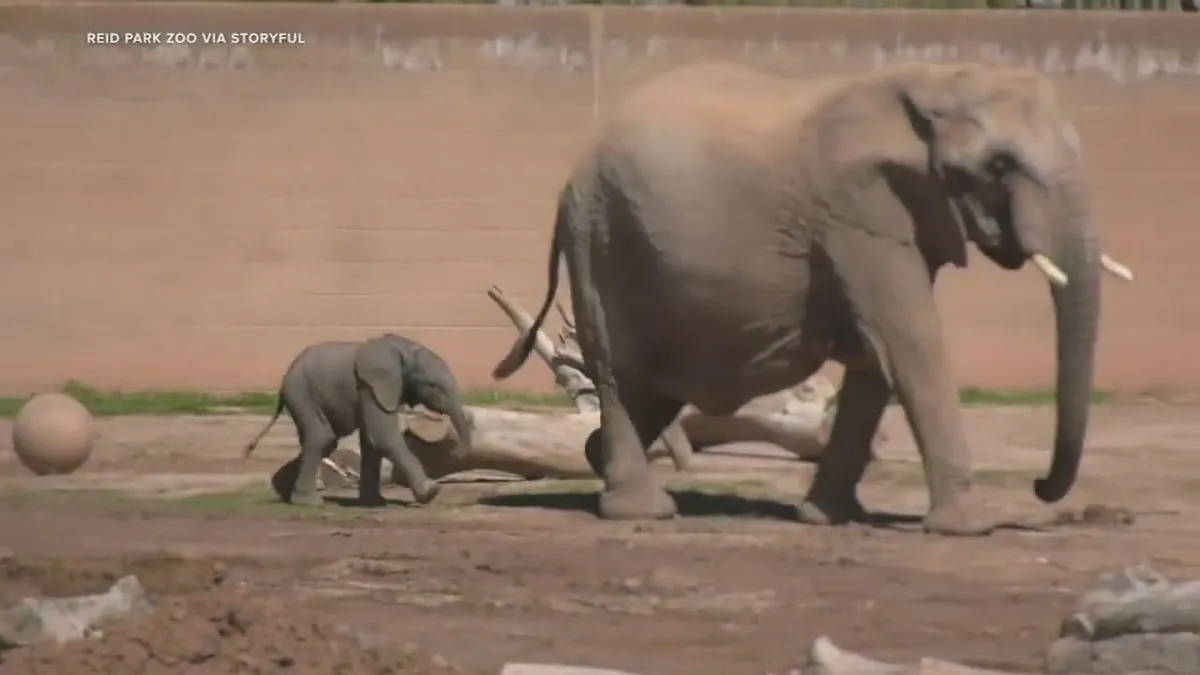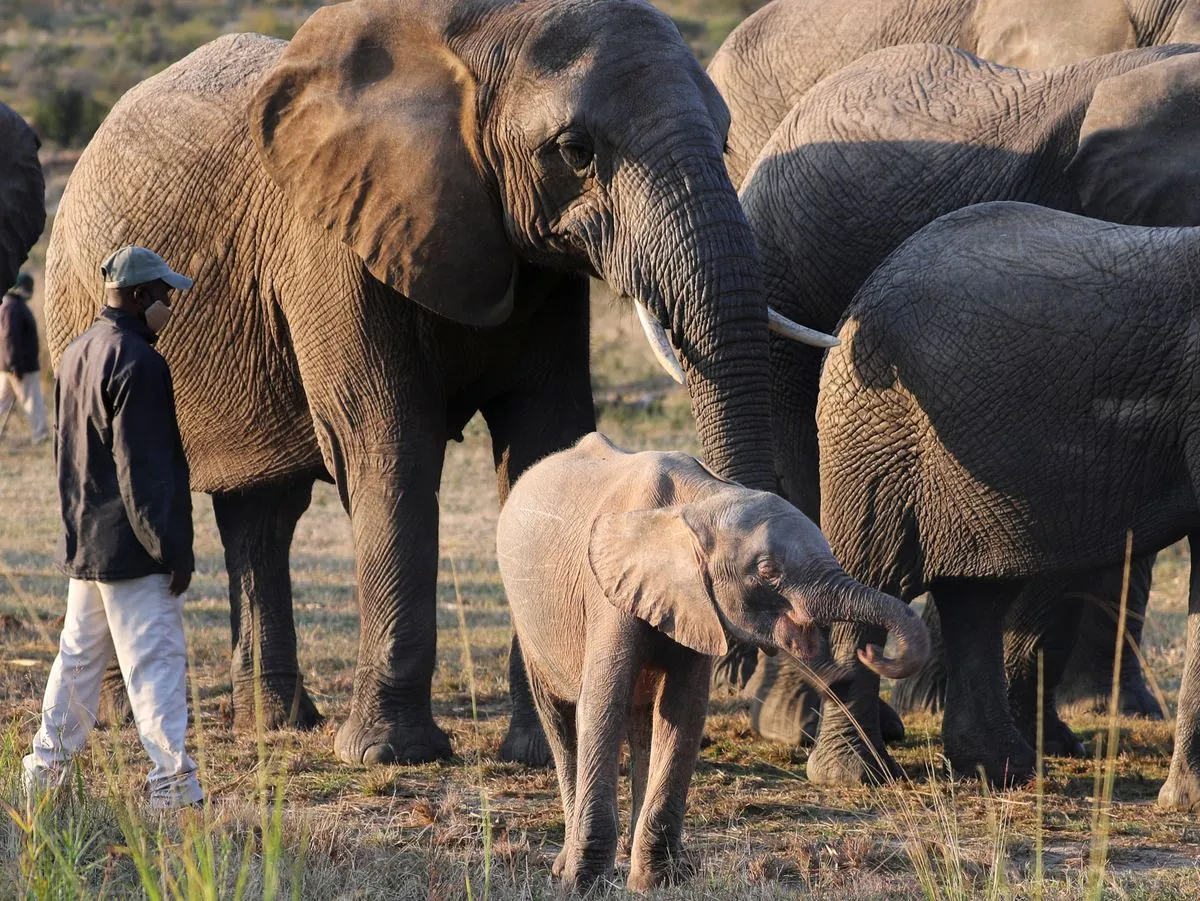Historic Elephant Birth at Fresno Zoo Sparks Debate on Captive Breeding
Fresno Chaffee Zoo welcomes its first elephant calf, marking a milestone in its breeding program. The birth ignites discussions about the future of elephants in zoos and animal welfare concerns.

In a significant development for the Fresno Chaffee Zoo, an African elephant calf was born early Friday, August 16, 2024. This event marks the first elephant birth in the zoo's history, highlighting its recent foray into elephant breeding programs.
Nolwazi, the mother elephant, successfully delivered the calf, which is now under constant surveillance by zoo staff. Jon Forrest Dohlin, the zoo's chief executive, emphasized the historic nature of this birth for the institution.
The Fresno Chaffee Zoo, located approximately 240 kilometers southeast of San Francisco, initiated its elephant breeding program in 2022 by introducing a male elephant to mate with Nolwazi and her daughter, Amahle. Interestingly, Amahle is also expected to give birth in the coming weeks, potentially doubling the zoo's elephant population.

This breeding initiative, however, has not been without controversy. Animal welfare activists have raised concerns about keeping elephants in captivity, citing their complex needs and social structures. African elephants, known for their intelligence and emotional depth, can live up to 70 years in the wild and have intricate social bonds. They are capable of recognizing themselves in mirrors, indicating self-awareness, and have been observed displaying behaviors associated with grief and mourning.
The debate surrounding elephants in zoos has led some larger institutions to phase out their elephant programs, opting instead to relocate these magnificent creatures to sanctuaries with more expansive habitats. This trend reflects growing awareness of the challenges in meeting the needs of these highly intelligent animals in captive environments.
Elephants, as keystone species, play a crucial role in maintaining biodiversity in their natural ecosystems. In the wild, they can consume up to 300 pounds of food and 50 gallons of water daily, using their versatile trunks which contain over 40,000 muscles for various functions including breathing, smelling, and grasping objects.
The future of elephants in zoos largely depends on breeding programs like the one at Fresno Chaffee Zoo. With a 22-month gestation period - the longest of any land animal - and relatively few offspring, successful births are crucial for maintaining captive populations. Newborn elephant calves typically weigh between 200-300 pounds at birth, a testament to the species' status as the largest land animals on Earth.
As the zoo celebrates this milestone, the event continues to fuel discussions about the ethics of keeping these complex, social animals in captivity and the role of zoos in conservation efforts.
"While we're thrilled with the success of our breeding program, we remain committed to the highest standards of elephant care and welfare. Our goal is to contribute to conservation efforts while educating the public about these magnificent creatures."
This birth at Fresno Chaffee Zoo serves as a focal point for ongoing debates about the future of elephants in captivity and the broader implications for wildlife conservation strategies.


































